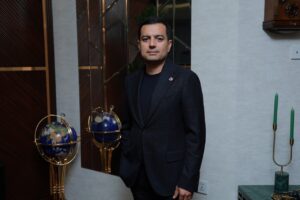Why is Qatar interested in investment in Kazakhstan?
In the middle of February, President Kassym-Jomart Tokayev visited Qatar where the two sides signed a series of investment agreements. Why Qatar and why is it investing in specific projects in Kazakhstan? Let’s break it down.
First of all, almost all states of the Persian Gulf actively invest abroad. Among the leaders are Saudi Arabia, the United Arab Emirates and Qatar. The reason why they are so keen on investing is simple: their economies just can’t digest all that inflow of money they receive by selling oil. When we talk about investors in these countries, we mean sovereign funds that control investment holdings which invest funds in different assets all over the world. As they hire the best investment consultants, they purchase the best assets. For example, Qatar Airways has acquired a 25% stake in the International Airlines Group which includes British Airways, Iberia and some other, smaller airlines. Another well-known acquisition by the Qataris is Harrods in London. The sovereign fund of Qatar – Qatar Investment Authority – also owns shares of the British Barclays and the Russian VTB. This is why an ex-minister of energy of Qatar became the chair of the board of directors of Rosneft last year.
Second, the investment strategy of the Gulf monarchies is usually focused on big countries (the U.S. or Russia) or regional markets (Europe, Africa and Southeast Asia). Kazakhstan has also become part of the regional investment strategy of Qatar. For instance, if you take a look at the news feed of Power International Holding, you’ll see pictures of not only Kazakhstan’s president but the president of Uzbekistan as well. In December 2023, Uzbekistan’s Foreign Ministry said that the holding would open its regional office in Tashkent. Saudi Arabia also believes in such a regional approach. For instance, the country organized the Gulf-Central Asia summit in the summer of last year.
Third, when the two sides commented on the arrangements they talked about notions such as investment attractiveness, mutual interest and big opportunities. We also have to put into this equation something very important – the institutional basis for bilateral cooperation. In 1999, when a ruler of Qatar visited Kazakhstan for the first time in history, both a bilateral inter-governmental commission and a business council were established. There were many investment forums, including the first meeting of the Kazakhstani-Qatari Chamber of Commerce and Industry that took place during President Tokayev’s visit to Qatar earlier this month. The two countries have also created a legal base that includes an agreement on promoting and mutual protection of investments. Of course, hats off to Kazakhstani diplomats who have done a lot as the Foreign Ministry is responsible for attracting foreign investments.
However, Abu Nasr al-Farabi Mosque (aka Nur-Astana) is the biggest project implemented by Qatar in Kazakhstan so far. The mosque was built by a Turkish construction company and financed by the Qatari. But it’s a gift, not an investment.
Foreign direct investments usually imply the purchase of a stake in a company. This stake must be big enough to give an investor the right to influence the company’s policy directly. In our case, the Qatari Lesha Bank has acquired 100% of Bereke Bank shares, while Power International Holding is going to purchase Mobile Telecom-Service LLP which controls Tele2 and Altel from Kazakhtelecom, the state-owned telecommunication company.
Another option for foreign direct investments is the establishment of joint ventures. A joint project of QazaqGas and the Qatari holding related to the construction of two gas processing plants, a compressor station and a gas pipeline is likely to be implemented this way.
There are some other three-party projects. For instance, Turkish Tiryaki Agro and Qatari Hassad Food are going to enter the Kazakhstani market to launch deep processing of grain.
They have already implemented successful joint projects in Canada. In Kazakhstan, they will partner with the state-owned holding of Baiterek.
I hope that all these projects will be successfully realized, fingers crossed. However, all of them are going to be bittersweet. First, we have to admit that whereas the Gulf monarchies have a single investment strategy, Central Asian states have not.
Second, the only goal of investors from Qatar is to make a profit and secure the food security of their country. They won’t think about creating new jobs in Kazakhstan, infrastructure development or prosperity of local communities.
Third, Qatari investments are like a litmus test as they put under the spotlight the most attractive sectors of Kazakhstan’s economy. Investors from Qatar are choosing the same industries as many other foreign investors before them: telecommunications, banking sector, oil and gas industry and food sector.
By the way, even though Qatar holds leading positions in many ratings, it is just 70th in the rating of economic complexity out of 131 countries (Kazakhstan is 77th) as LPG, oil and oil products account for 87% of its exports.
This means that Kazakhstan will effectively receive (and spend) that money but nothing will change in the structure of our economy unless we do this on our own.
Opinions by individual authors do not necessarily reflect the views of the editorial staff of Kursiv.media.




